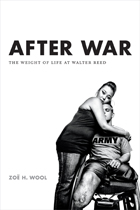

In this elegant, humorous, and brutally frank memoir, Weimer's discoveries—documentative and imaginative, historical and personal—reveal much about what motivates research, and what motivates healing.
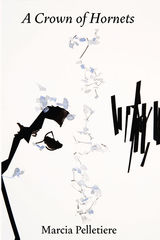
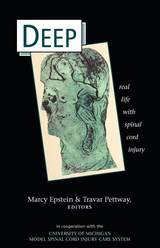
"This project fits into the larger picture of excellence that we wish to accomplish in all dimensions of our health system: groundbreaking and dedicated research, compassionate clinical care, progressive education, and a welcoming environment that includes community with people with disabilities. In Deep, the writers and editors of this book realize this mission with accuracy and clarity."
---Denise G. Tate, Director of Research at the University of Michigan Model Spinal Cord Injury Care System
People with spinal cord injuries experience life beyond their medical and rehabilitative journeys, but these stories are rarely told. Deep: Real Life with Spinal Cord Injury includes the stories of ten men and women whose lives have been transformed by spinal cord injury. Each essay challenges the stereotypes and misconceptions about SCI---with topics ranging from faith to humility to sex and manhood---offering a multitude of voices that weave together to create a better understanding of the diversity of disability and the uniqueness of those individuals whose lives are changed but not defined by their injuries. Life with SCI can be traumatic and ecstatic, uncharted and thrilling, but it always entails a journey beyond previous expectations. This volume captures this sea change, exploring the profound depths of SCI experience.

This journey to the beginnings of the physician’s art brings to life the civilizations of the ancient world—Egypt of the Pharaohs, Greece at the time of Hippocrates, Rome under the Caesars, the India of Ashoka, and China as Mencius knew it. Probing the documents and artifacts of the ancient world with a scientist’s mind and a detective’s eye, Guido Majno pieces together the difficulties people faced in the effort to survive their injuries, as well as the odd, chilling, or inspiring ways in which they rose to the challenge. In asking whether the early healers might have benefited their patients, or only hastened their trip to the grave, Dr. Majno uncovered surprising answers by testing ancient prescriptions in a modern laboratory.
Illustrated with hundreds of photographs, many in full color, and climaxing ten years of work, The Healing Hand is a spectacular recreation of man’s attempts to conquer pain and disease.
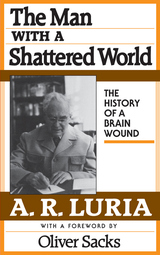
Russian psychologist A. R. Luria presents a compelling portrait of a man’s heroic struggle to regain his mental faculties. A soldier named Zasetsky, wounded in the head at the battle of Smolensk in 1943, suddenly found himself in a frightening world: he could recall his childhood but not his recent past; half his field of vision had been destroyed; he had great difficulty speaking, reading, and writing.
Much of the book consists of excerpts from Zasetsky’s own diaries. Laboriously, he records his memories in order to reestablish his past and to affirm his existence as an intelligent being. Luria’s comments and interpolations provide a valuable distillation of the theory and techniques that guided all of his research. His “digressions” are excellent brief introductions to the topic of brain structure and its relation to higher mental functions.
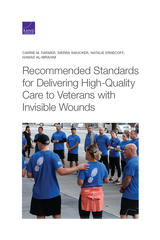
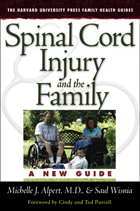
Spinal cord injury, or SCI, is frequently sudden and unexpected—through accident, disease, or violence, patients temporarily lose control of their bodies and, it seems, their lives. With rehabilitation, they can learn to navigate their world once more, retraining muscles and mind to compensate for paralyzed limbs and diminished strength. But as Dr. Michelle Alpert shows here, there is far more to recapturing full, independent lives than regaining movement. Central to long-term success is mending the family unit.
Combining Dr. Alpert’s clinical experience with patients’ own stories, Spinal Cord Injury and the Family is for individuals and their families who must climb back from injury: for the young quad couple, both quadriplegic, who wish to conceive and raise a child; for the paraplegic dad who wants to teach his daughter to drive; for the couple wondering how they can regain the sexual spark in their relationship.
The authors cover the causes of and prognosis for SCI through case studies, review common courses of rehabilitation, and answer the “what now?” questions—from daily routines to larger issues concerning sex, education and employment, childbearing, and parenting with SCI. Rich in clinical information and practical advice, the book shows how real patients and their families are living full lives after spinal cord injury.
READERS
Browse our collection.
PUBLISHERS
See BiblioVault's publisher services.
STUDENT SERVICES
Files for college accessibility offices.
UChicago Accessibility Resources
home | accessibility | search | about | contact us
BiblioVault ® 2001 - 2024
The University of Chicago Press









